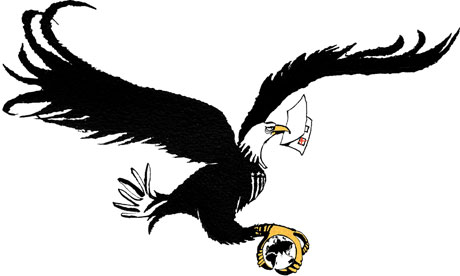
When U.S. forces invaded Iraq in 2003, they seemed like an invulnerable power, just as it seemed that the U.S. administration was on the verge of realizing its goals by occupying this Arab country and then exploiting it as a launching pad to affirm its control over the region and the world. But all of a sudden the American dream turned into an acute nightmare, and instead of becoming the starting point for the “new American century,” Iraq became a quagmire into which U.S. forces sank in fierce, bloody confrontations, so U.S. triumph was not achieved. Then began the U.S. conspiracy against the Arabs in order to save itself from its defeat in Iraq and Afghanistan.
On the basis of this, political science professor James Kurth** described the new features of the U.S. saying, “It represents an adolescent empire not only because the United States has not spent a long time in the arena of empire, and not because we have not been become intellectually and ideologically absorbed in it [empire], but rather because our culture is prisoner to beauty, youth, and opulent wealth. Also, our experience in imperial action is limited or, as one can say, the United States is still in the first year of empire school.”***
Thus, the U.S. is an empire in its probationary period or an actual empire without officially bearing this name, and perhaps this explains the reasons for all the problems, unrest and wars that that the U.S. contrives and hurls at the world. This empire puts out more than one third of global production, and so we can understand what this means. Britain, which occupied more than one of quarter of the world in terms of population and land, only put out 10 percent of global production. Britain controlled one quarter of the world over the span of decades and probably a century. The adolescent imperial U.S. was involved in the occupation of Iraq and Afghanistan, and its NATO-backed war on Libya made apparent the signs of U.S. failure and blundering, despite all the appearances of propaganda and deception that try to portray the opposite. For the U.S.’ dilemma in Iraq, Afghanistan and Libya is clear, and by getting entangled in the conspiracy against our Syrian sisters and brothers, the great gate to the Arabs and their way station, this dilemma shows the extent of weakness in the core and base of the imperial U.S. In order to understand the truth of Obama’s empire and Bush’s before him, one must delve into the developments and mistakes of the past years, and probably months. Likewise, one must re-examine the meaning of “superpower.” This meaning blends, overlaps and tangles with many other meanings, such as wealth, arms, influence and attractiveness. The superpower may possess many of those elements, but its influence and impact remain limited — this is the dilemma of the U.S. empire.
With this in mind, the elements of impotency latent in the U.S. empire are summed up as follows: The U.S. Army reserve is insufficient to deploy everywhere at the same time, foreign investments and savings are behind U.S. economic growth, and the U.S. budget deficit from wars in the region has exceeded half of $1 trillion. Likewise, we cannot forget the spread of hatred of and opposition to U.S. hegemony — the occupation of Iraq was the greatest shock to the Americans and contributed to the beginning of the disintegration of the regional situation already in crisis, especially with regard to the Palestinian issue. But the reality on the ground indicates the opposite of this, for Israel is doing what it pleases to the Palestinians with no accountability whatsoever, and North Korea is continuing its challenges to Washington, has restarted work on its nuclear program and has threatened to use nuclear weapons. Washington hesitated for a long time to send its forces to a small African country like Liberia, where there are no temptations of oil or natural resources. Only 225 U.S. soldiers reached Liberian shores, fifty of whom were afflicted by malaria, and before long — after only two months — the Americans pulled out of Liberia and left many wondering what the limits of U.S. imperial power are.
There is also a dangerous truth: U.S. financial stability depends on the Chinese central bank to a great extent. This is a terrifying and little-known truth that the U.S.’ financial stability is in Beijing and not Washington.
Thus, we see the truth of the U.S. empire on the ground, on the inside and on the outside, the empire that is growing increasingly intoxicated, proud and swollen — for the time being.
*The author is an Iraqi academic and writer.
**Translator’s note: The name of the professor phonetically translates to something like /kort(e)r/. James Corter is also a U.S. professor, but of experimental psychology. The author appears to have written the professor’s last name inaccurately.
***Editor’s note: The original quotation, accurately translated, could not be verified.

Leave a Reply
You must be logged in to post a comment.